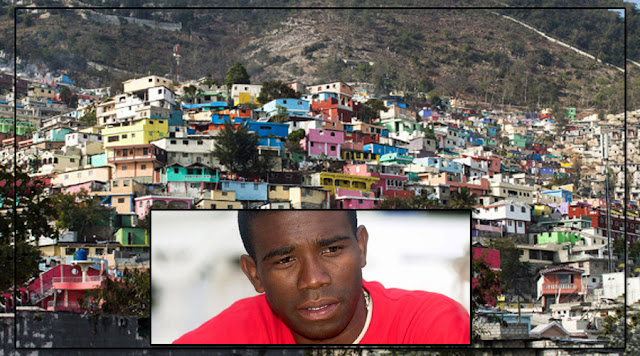Haiti's Political Turmoil: The Return of Guy Philippe
Haiti, a Caribbean nation of 11 million, is currently grappling with a multitude of crises. The country is plagued by armed gangs, an overwhelmed police force, and widespread food insecurity. With no democratically elected officials in place, the nation's governance is in a state of disarray. The National Assembly is vacant, and the presidency is unoccupied. This has left Ariel Henry, the unelected and widely despised prime minister, at the helm.
Henry was appointed by the late President Jovenel Moïse just days before his unsolved assassination in 2021. Despite his term ending on Wednesday, Henry has managed to delay a political transition. Amidst this chaos, a new challenge has emerged: Guy Philippe.
Philippe, a charismatic rebel leader, led the 2004 uprising that permanently ousted then-President Jean-Bertrand Aristide. Recently released from a U.S. prison, Philippe has gained the loyalty of an armed brigade in the Environment Ministry. He has called for nationwide "civil disobedience" and joined the public in demanding Henry's resignation.
Philippe, a former police chief and senator, was extradited to the U.S. in 2017 to face federal corruption charges. He pleaded guilty to money laundering conspiracy, admitting to accepting bribes to protect Colombian cocaine shipments through Haiti to Miami. After serving a nine-year sentence, Philippe returned to Haiti in November, a move that shocked many Haitians and international observers.
Since his return, Philippe has been rallying support for a "revolution," drawing inspiration from the Sri Lankan protesters who forced their President to resign in 2022. He has promised to end gang violence within 90 days, though he has not elaborated on his plan.
Philippe's call for Henry's resignation is echoed by other prominent leaders, including a former prime minister and senator. Protests have erupted across the country, leading to the closure of government buildings, businesses, and schools. The police have resorted to tear gas to disperse the crowds, and reports of looting and arson have surfaced.
The U.N. Security Council has supported a Kenyan-led police mission to restore order in Haiti. However, this plan suffered a setback when Kenya's High Court ruled such a deployment unconstitutional. The Kenyan government has announced its intention to appeal.
As Haiti's political crisis deepens, the question remains whether Philippe's call for a "revolution" will resonate beyond his traditional support base. The country's elites have historically capitalized on social unrest to finance destabilizing demonstrations, but many are now under sanctions.
The situation in Haiti is dire, and the return of Guy Philippe could potentially exacerbate the instability. The country's future remains uncertain as it grapples with political turmoil, economic hardship, and escalating violence.
Source : News Agencies

